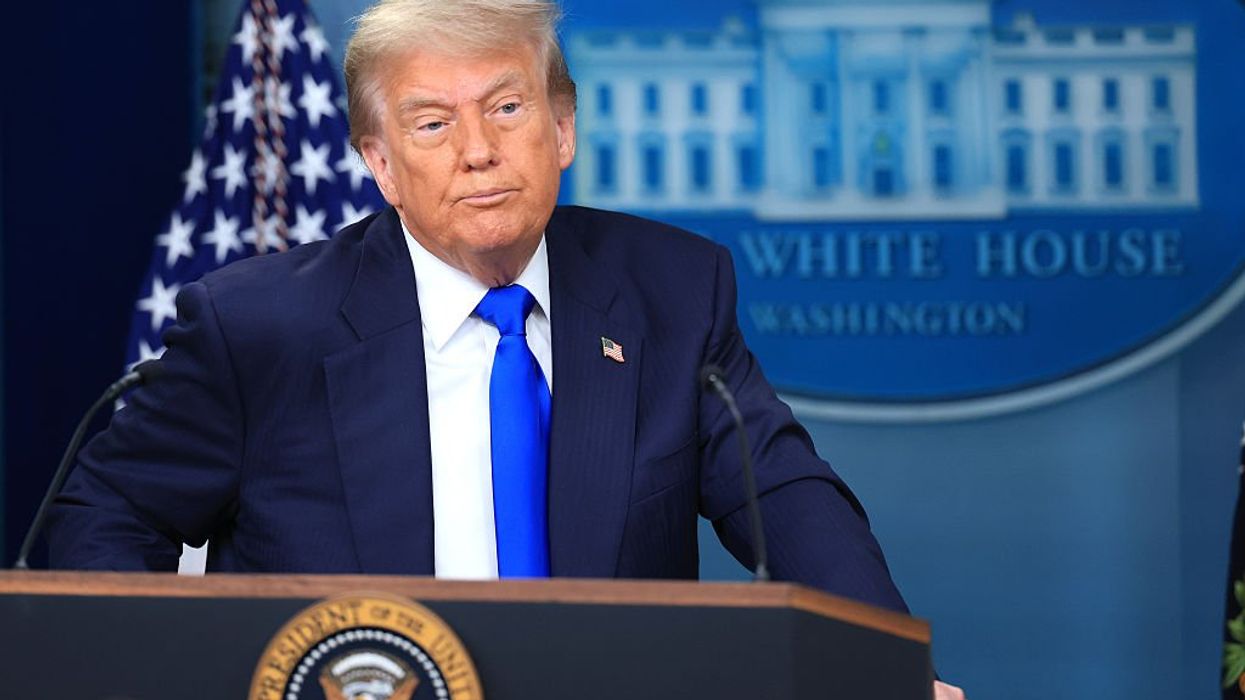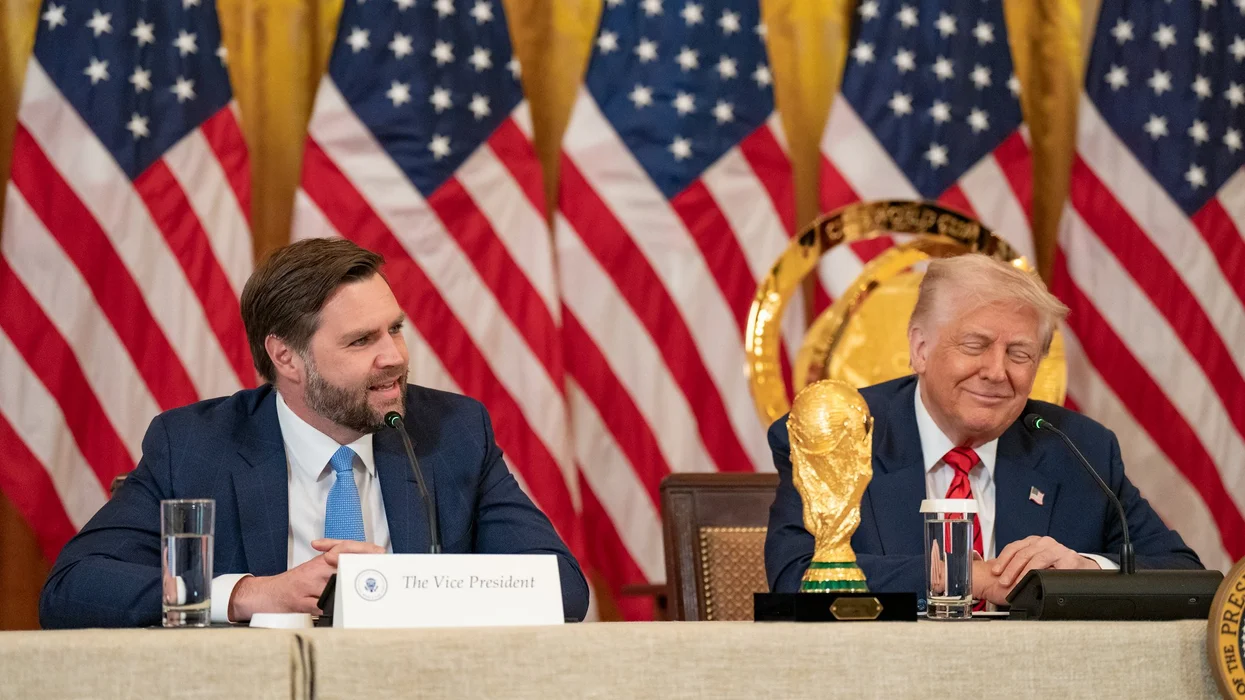
© 2025 Blaze Media LLC. All rights reserved.
Fed Audit Reveals Tax-Payer Backed Battery Factory Hasn't Produced or Sold a Single Battery Since Awarded Fed Grant in 2009
February 14, 2013
A taxpayer-backed battery plant in Holland, Mich., made headlines last year after it was discovered its employees were being paid to do nothing.
Now LG Chem Michigan Inc., a subsidiary of South Korea's LG Group, is back in the news after it was revealed Wednesday that it has not produced or sold a single battery since being awarded a $150 million federal grant in 2009, according to a new report by the Energy Department’s Inspector General.
Not a single one.
“LG Chem Michigan ... [is] likely to miss the grant’s May 2013 deadline for completion,” Nextgov reports. “What’s more, the project created fewer than half of the projected 440 new jobs anticipated by proponents."
One of the reasons LG Chem Michigan hasn't had any success in sales is because it was created with the idea of supplying GM with batteries for what ended up being a unpopular vehicle: The Chevy Volt. Also, GM long ago decided to purchase its battery cells from LG Chem's facilitates in South Korea instead of the one based Michigan.
The plant was also awarded more than $175 million in state and local tax relief.
 President Barack Obama gives Gov. Jennifer Granholm a hug as LG Chem Ltd. Chairman Bon-Moo Koo, left, watches (AP)
President Barack Obama gives Gov. Jennifer Granholm a hug as LG Chem Ltd. Chairman Bon-Moo Koo, left, watches (AP)
LG Chem Michigan used large portions of its federal grant to pay employees who, in turn, watched movies and played cards because there was no work to be done.
"We found that work performed under the grant to LG Chem Michigan had not been managed effectively," writes Gregory Friedman, the DOE inspector general.
"Our review revealed that LG Chem Michigan inappropriately claimed and was reimbursed for labor charges incurred by a variety of supervisory and staff employees for activities that did not benefit the project,” Friedman adds.
The Department of Energy reimbursed the company for what it now calls “questionable labor costs incurred” in Q3 2012. The inspector general was unable to “calculate the exact loss to the government because LG Chem Michigan did not track labor activities in detail,” the Detroit Free Press notes.
"However, based on LG Chem Michigan employee revelations, we believe it is likely that the total amount of charges that included at least some non-productive work exceeded $1.6 million, about $842,000 of which was reimbursed in accordance with its cost-sharing arrangement for the project," the report stated.
Here are some of the other findings included in the report (via DFP):
- The plant has not yet made battery cells that could be used in electric vehicles sold to the public.
- Only about 60% of the capacity agreed to when the grant was received was constructed even though nearly $142 million of $151 million of the Energy Department's share of the project's funding had been spent.
- LG Chem Michigan officials estimated the government would need to spend $22 million more to complete the five production lines called for in the agreement, an amount that would significantly exceed the remaining funds available.
- LG Chem Michigan had significantly underestimated labor costs.
- Documentation to support the grant indicated that production of battery cells would transition from LG Chem's South Korean facility to the Michigan plant beginning in 2012, but that didn't happen.
- Less than half of the 440 expected jobs had been created to support the project.
- The period of performance for the grant runs through May 2013. Yet, the expected benefits of the project are not likely to be realized within the originally anticipated timeframes.
Shortly after the federal audit, LG Chem Michigan released a statement saying it would reimburse the government $842,000 for labor costs.
"The company says it is taking steps to prevent such actions in the future and to comply with rules for use of federal grant money," WKZO reports. "LG Chem says it is aware of concerns that the Holland plant has not produced batteries, but it is still committed to the future of the facility."
The U.S. Department of Energy Office of Inspector General declined to comment on the audit, citing instead its status as being independent from the DOE. A spokeswoman directed TheBlaze to the DOE’s main office for further comment.
Neither the DOE nor LG Chem’s U.S. headquarters immediately responded to a request for comment Thursday afternoon.
Attempts to contact the Hollande, Mich., plant were met with busy signals.
 President Obama greets workers in 2010, at the groundbreaking ceremony at LG Chem Michgan Inc., then known as Compact Power Inc., a battery plant in Holland, Mich. (Susan Walsh/AP)
President Obama greets workers in 2010, at the groundbreaking ceremony at LG Chem Michgan Inc., then known as Compact Power Inc., a battery plant in Holland, Mich. (Susan Walsh/AP)
Readers may recall that President Barack Obama in 2010 visited the electric battery plant to promote his administration’s clean energy agenda.
“Our goal has never been to create a government program, but rather to unleash private-sector growth,” Obama said. “And we’re seeing results.”
“This is a symbol of where Michigan’s going. This is a symbol of where Holland is going. This is a symbol of where America is going,” he added.
Take from that what you will.
Follow Becket Adams (@BecketAdams) on Twitter
Featured image AP.
Want to leave a tip?
We answer to you. Help keep our content free of advertisers and big tech censorship by leaving a tip today.
Want to join the conversation?
Already a subscriber?
more stories
Sign up for the Blaze newsletter
By signing up, you agree to our Privacy Policy and Terms of Use, and agree to receive content that may sometimes include advertisements. You may opt out at any time.
Related Content
© 2025 Blaze Media LLC. All rights reserved.
Get the stories that matter most delivered directly to your inbox.
By signing up, you agree to our Privacy Policy and Terms of Use, and agree to receive content that may sometimes include advertisements. You may opt out at any time.





